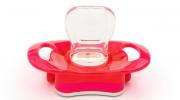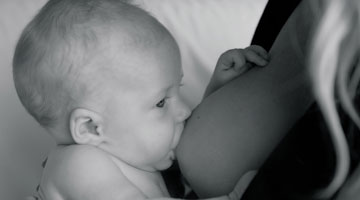Getting rid of Pacifiers and Thumb Sucking
Advice for Breaking Unhealthy Habits
Brandon is nearly three, and continues to use a pacifier. It has become replacement for self-soothing and is beginning to affect his bite. His mother, not recognizing the correlation, takes her darling child to the dentist for a checkup. Once there, she finds out that by allowing him to continue with this habit is affecting his bite. She becomes angry but, later, begins to wonder what she should have done differently.
They’re cute and cuddly, and almost impossible to say no to. And, too often, we find ourselves indulging our children. Some infants want to use a pacifier, and the parents don’t see anything wrong with indulging them. However, by the time is two, potty trained, and in preschool, it becomes less cute. The child may get teased about still sucking on a now beaten and battered piece of latex or silicone. The parents may find themselves being scrutinized and even scolded for allowing this habit to continue for so long. It is estimated that, after their first birthday, a pacifier is simply a habit, and not a healthy one.
... Read more
In fact, it has been proposed in
Science Daily that children who use a pacifier after the age of two can affect their bite, such as protruding front teeth, an overbite or crossbite.
“MAMA!”
She wakes from a dream to find her three-year-old standing next to her bed. “What is it, sweetheart?”
“It’s storming! Can I sleep with you?”
She frowns, hearing the sound of thunder outside. Her daughter has never been able to sleep through a thunderstorm. Typically, she goes back into her room, and stays with her until she’s asleep. Tonight, however, she isn’t feeling well, and the thought of sitting next to her little girl’s bed for an hour or so is the last thing she wants to deal with. Instead, she simply lifts her into her own bed, and curls up with her. What could it hurt, afterall?
However, fast forward six months, and the little one is finding every reason in the book to come sleep between mommy and daddy. By the time the toddler has turned into an elementary school aged child, daddy is now sleeping in the guest room most nights, because there doesn’t seem to be enough room for him in bed now. According to author Steph Daniel, ‘’if your kids are spending the night in mom and dad’s bed, then it will cause a conflict in the intimacy department.” While there is no set age for ceasing to allow a visitor to your bed, as Jane Rinzler Buckingham says: "the older they are, the more difficult it can be to change an unhealthy habit."
Think about the first time you smoked a cigarette, drank, or some other habit that could be very difficult to break. Did you intend to become dependent on that cigarette or beer? Of course not. However, the more you indulged it, the more important it became to please that habit. Now, consider that habit back when you had little ability to change your behavior without a guiding hand. Doesn’t look very good, does it?
First and foremost, remember this: YOU ARE IN CHARGE. Just as you would with anyone who needed an intervention, you’re going to have to be the voice of reason, because they can’t. So prepare yourself, because you’re in for a rough time. This is where it becomes important to quash that habit earlier rather than later. The longer your child is indulged, the longer the transition. While at age two it may only be three days of tantrums and tears, pleading and anger, at six or seven years of age, it could very well be three months.
STAND FIRM. You may find yourself beginning to waver, but remember that you are in charge. It may seem to be a small thing to allow them a pacifier at bedtime, or allow them to sleep with you occasionally. But remember this: the next day, chances are, you and your child will be back at square one. Only this time, your child knows that THEY are in charge. Welcome to a life where your five-year-old makes the decisions for the family.
CELEBRATE THE LITTLE VICTORIES. It’s your choice on what and how, but there’s nothing wrong with a small reward for making it through a twenty-four-hour period without giving in to that unhealthy habit. It doesn’t need to be anything huge or expensive. A special treat, perhaps. Allow them to pick out their breakfast cereal after a successful night in their own bed, a special snack after a successful day without their pacifier. The reward is up to you and your child.


















